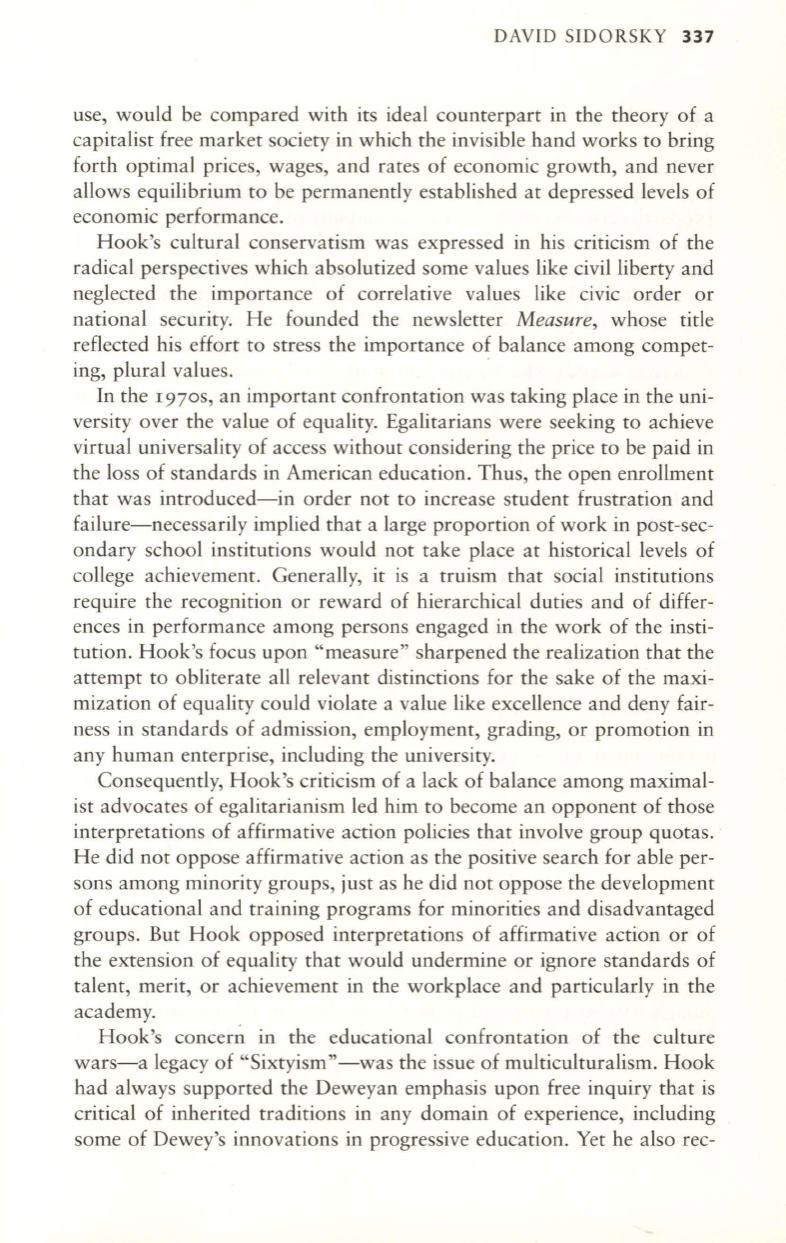
DAVID SIDORSKY
337
use, would be compared with its ideal counterpart in the theory of a
capitalist free market society in which the invisible hand works
to
bring
forth optimal prices, wages, and rates of economic growth, and never
allows equilibrium
to
be permanently established at depressed levels of
economic performance.
Hook's cultural conservatism was expressed in his criticism of the
radical perspectives which absolutized some values like civil liberty and
neglected the importance of correlative values like civic order or
national security. He founded the newsletter
Measure,
whose title
reflected his effort to stress the importance of balance among compet-
ing, plural values.
.
In
the 1970s, an important confrontation was taking place in the uni–
versity over the value of equality. Egalitarians were seeking
to
achieve
virtual universality of access without considering the price
to
be paid in
the loss of standards in American education. Thus, the open enrollment
that was introduced-in order not to increase student frustration and
failure-necessarily implied that a large proportion of work in post-sec–
ondary school institutions would not take place at historical levels of
college achievement. Generally, it is a truism that social institutions
require the recognition or reward of hierarchical duties and of differ–
ences in performance among persons engaged in the work of the insti–
tution. Hook's focus upon "measure" sharpened the realization that the
attempt
to
obliterate all relevant distinctions for the sake of the maxi–
mization of equality could violate a value like excellence and deny fair–
ness in standards of admission, employment, grading, or promotion in
any human enterprise, including the university.
Consequently, Hook's criticism of a lack of balance among maximal–
ist advocates of egalitarianism led him to become an opponent of those
interpretations of affirmative action policies that involve group quotas.
He did not oppose affirmative action as the positive search for able per–
sons among minority groups, just as he did not oppose the development
of educational and training programs for minorities and disadvantaged
groups. But Hook opposed interpretations of affirmative action or of
the extension of equality that would undermine or ignore standards of
talent, merit, or achievement in the workplace and particularly in the
academy.
Hook's
concer~
in the educational confrontation of the culture
wars-a legacy of "Sixtyism"-was the issue of multiculturalism. Hook
had always supported the Deweyan emphasis upon free inquiry that is
critical of inherited traditions in any domain of experience, including
some of Dewey's innovations in progressive education. Yet he also rec-


